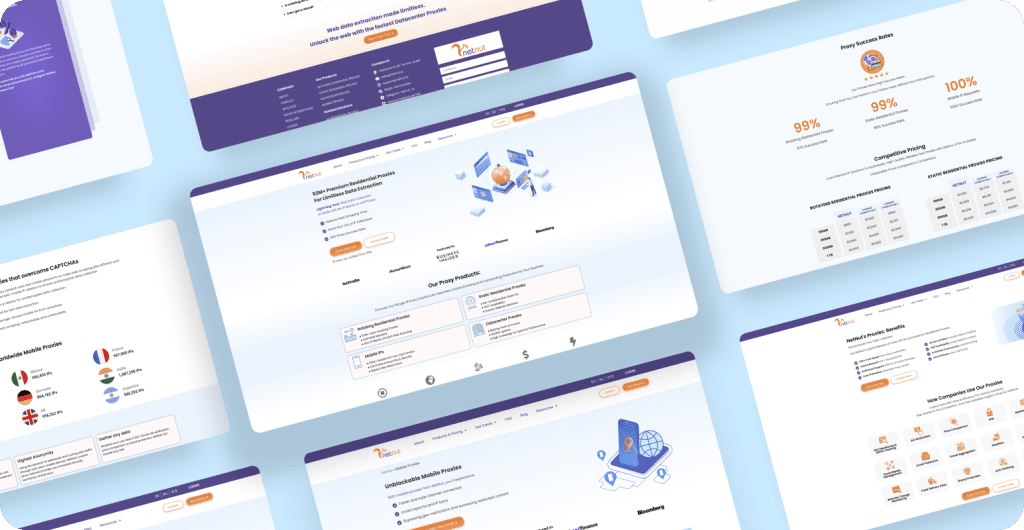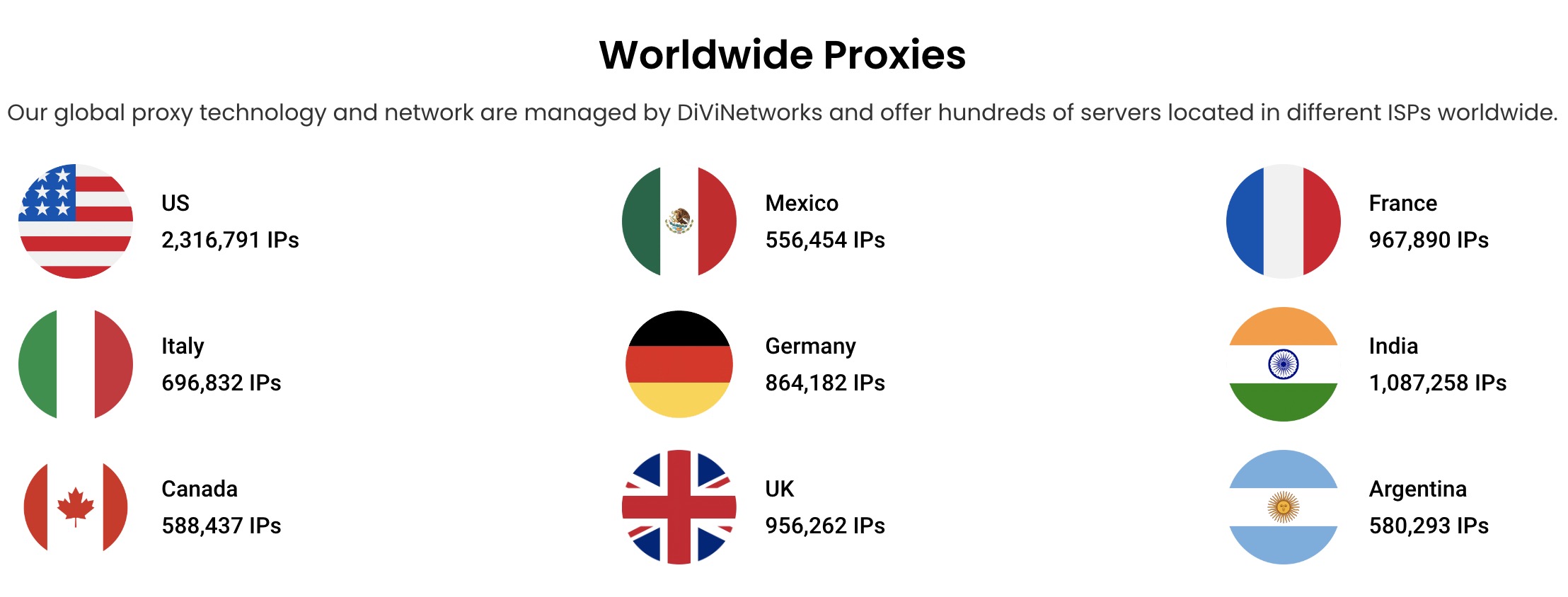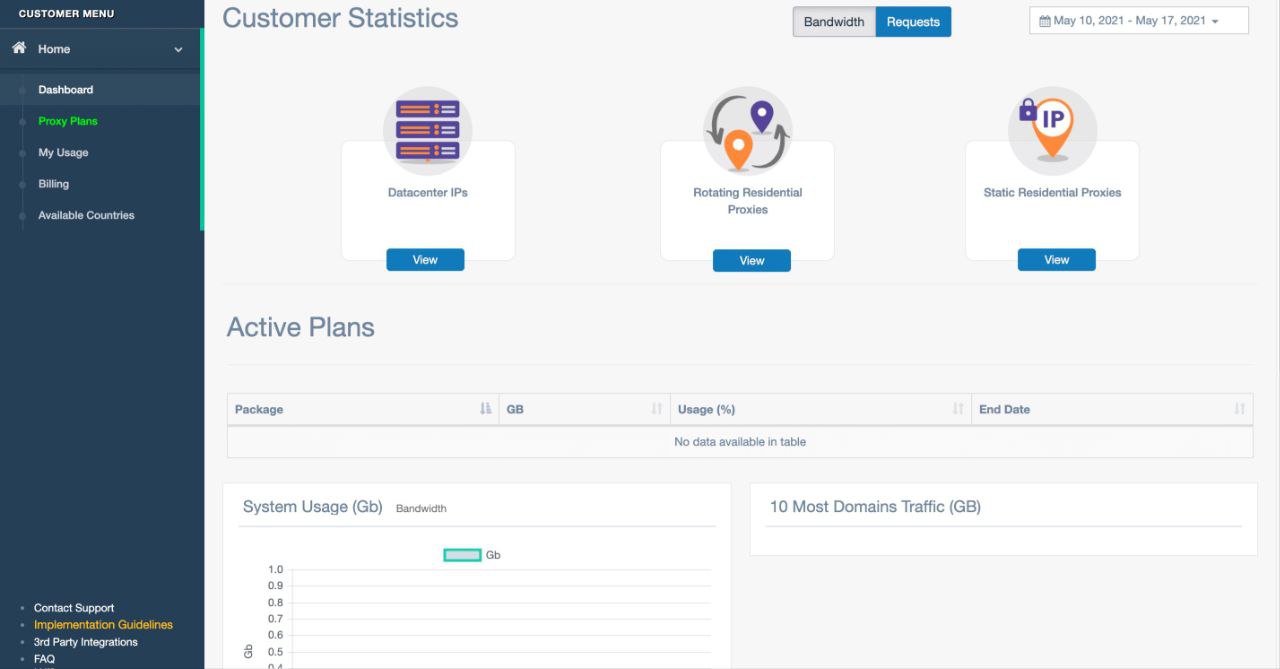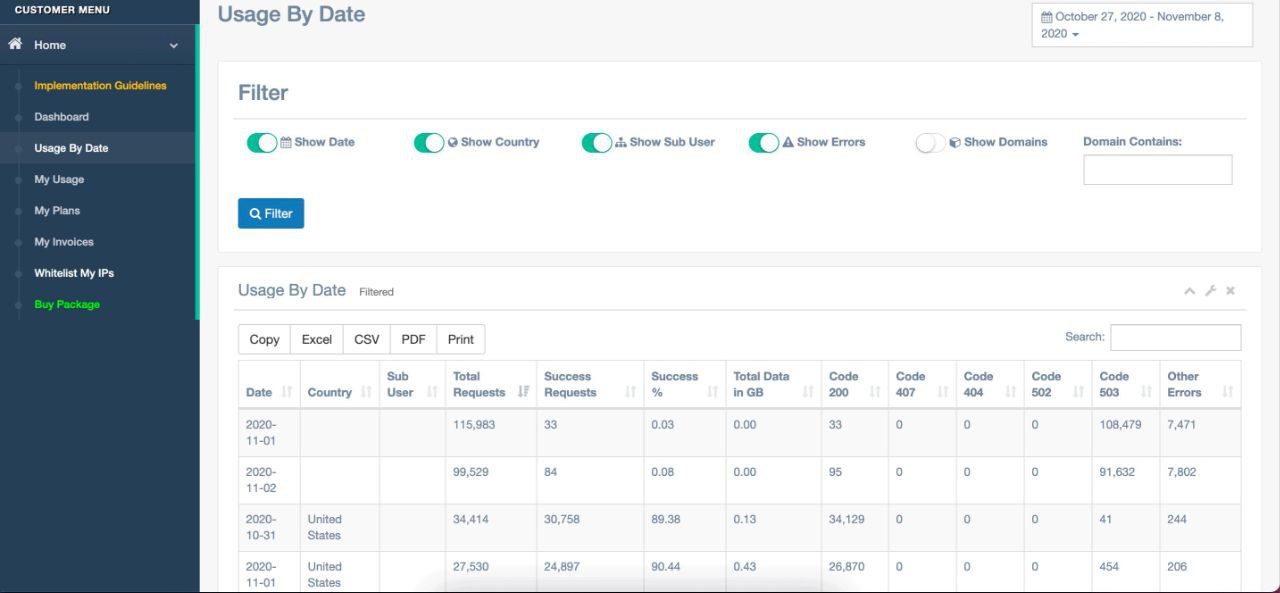Netnut Proxy Review 2023

Netnut Solutions
Pricing


NetNut offers a range of pricing plans designed to meet the needs of different users. Plans start at $800 per month for 100 GB of data and go up to $5,000 per month for 1 TB of data. The company also offers custom plans for businesses with larger data needs. While NetNut‘s prices are higher than some other proxy providers, the company’s focus on performance and reliability makes it a good option for businesses that need high-quality proxies for mission-critical applications.
Locations


In total, they support around 50 countries. The list you provide is:
USA, Sweden, Finland, Switzerland, Spain, Mexico, Italy, France, Canada, Germany, Denmark, Norway, Russia, Ukraine, Poland, Portugal, Netherlands, Turkey, United Kingdom, India, Madagascar, Brazil, Hungary, Ireland, Australia, China, Qatar, Iraq, Saudi Arabia, Jordan, Philippines, Taiwan, Japan, Hong Kong, Kenya, Cyprus, Malaysia, Singapore, Indonesia, Vietnam, Bangladesh, Luxembourg, Nepal, Argentina, Thailand, South Korea.
Performance
Overall, NetNut delivers high-quality residential proxies that are fast, reliable, and secure. The company’s focus on performance is evident in its dedicated 1 Gbps lines and optimized server infrastructure, which ensures that users can access the internet quickly and without any lag. In addition, NetNut’s residential IP addresses make it much harder for websites and online services to detect that you’re using a proxy, which enhances privacy and security.
In conclusion, NetNut is a top-notch residential proxy provider that offers a range of features, pricing plans, and customer support options designed to meet the needs of businesses and individuals. While the company’s prices are higher than some other providers, its focus on performance and reliability makes it a great option for anyone who needs high-quality proxies for mission-critical applications.
NetNut Proxy Networks
| Datacenter | Residential | ISP | Mobile |
| ✅
(rotating) |
✅ | ✅
(rotating) |
❌ |
NetNut controls three proxy networks: shared data center IPs, peer-to-peer residential proxies, and it’s signature static residential proxies. NetNut also has a proxy-based web scraping API but does very little to advertise it, so neither will we.
As things usually go with these proxy types, data center IPs are best for running small-scale projects with unprotected websites. Rotating residential proxies supports more locations and is harder to detect. Static residential IPs work well with protected targets when you need a consistent identity.
Dashboard overview
NetNut‘s dashboard is a mixed bag. Some parts are very delicate, while others are missing or missing entirely.
From the dashboard, you can track your usage statistics and bill, view active plans, and purchase new plans. You can also set up a proxy server, although the process is a bit complicated and non-intuitive. Finally, there are links to integration guides, a list of available countries, and a form to contact support.


NetNut seems to pay special attention to statistics: you’ll find several pages dedicated to visually tracking your proxy usage, and there’s even an API for programmatic access. You can view your proxy usage by sub-user, domain, country, or even the error code encountered.


Real-Time Table
You will obtain an account for Traffic Data Analysis and Reporting in addition to the proxies that NetNut offers, which enables you to examine real-time data, such as the total bandwidth and the total bandwidth of the statistics of the requests, by using country account information.
Customer Support
NetNut offers customer support through a range of channels, including email, phone, and live chat. The company’s support team is available 24/7 to answer questions and provide assistance with any issues that may arise. In addition, NetNut offers a comprehensive knowledge base that includes tutorials, FAQs, and other helpful resources.
Documentation
NetNut has had problems displaying information in the past. Despite the best efforts of vendors, many of these issues remain unresolved.
That’s not to say NetNut doesn’t have documentation, the main tools have fairly lengthy FAQs and integration guides. However, if you want to find out whether non-resellers can create sub-users, how to target cities, residential IP rotation options, or how the scraping API works, you’re going to have to dig a little deeper or give up and write directly to NetNut people depressed.
However, NetNut seems to be finally starting to put user experience first, and hopefully, things will change soon.
Our take
NetNut is a top-notch residential proxy provider that offers a range of features, pricing plans, and customer support options designed to meet the needs of businesses and individuals. While the company’s prices are higher than some other providers, its focus on performance and reliability makes it a great option for anyone who needs high-quality proxies for mission-critical applications.
We like
- Hybrid P2P network for added scalability boost
- 24/7 IP availability
- Worldwide targeting & US city-state selection
- Access all the web including search engines
- Uptight session management
- Excellent scraping performance
- Premium Static & Rotating Residential IPs
We dislike
- No SOCKS support
- No IP whitelisting
- Geo-targeting is limited to countries only
- Relatively expensive

Leave feedback about this